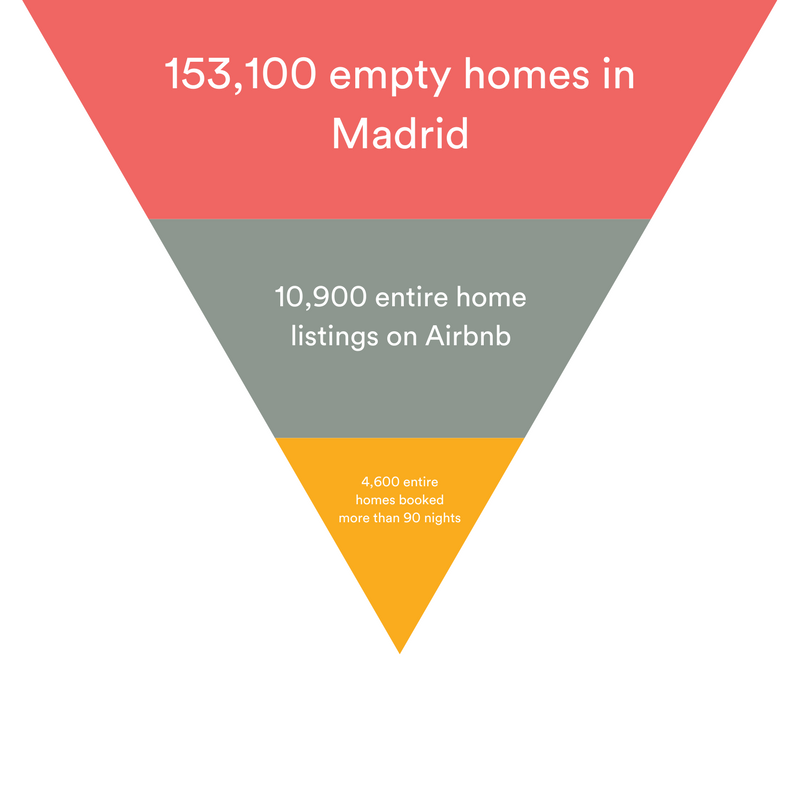Airbnb and housing in Madrid

At Airbnb, we take local concerns seriously, especially in cities like Madrid, that is facing a demand for urban housing that outstrips the supply. Airbnb wants to be good partners to cities and regions. That’s why we’ve engaged with over 300 governments on clear home sharing rules and taken proactive steps in cities to help ensure home sharing grows responsibly and sustainably.
In response to wrong data circulating about the impacts of home sharing in Madrid, at Airbnb we are publishing a report about our community in Madrid, to help policymakers make informed decisions affecting the lives of thousands of local families.
According to Airbnb official data:

1) The scale of Airbnb in Madrid is too small to have a material effect on housing.
In Madrid specifically, entire home listings on Airbnb booked more than 90 nights in 2017 represented just 0.3% of the total housing stock. That’s 32 times more empty homes than listings booked for over 90 nights.
2) The true cause of housing affordability challenges in Madrid is that demand for urban housing has outstripped supply.
Empty homes, shortage of social housing and a freezing in new housing development are factors with a much larger effect than Airbnb. In Madrid there are 153,100 empty housing units representing 10% of the total housing stock.
3) Airbnb income helps housing affordability for the people who need it the most.
When housing and cities become expensive, Airbnb income helps hosts stay in their homes, afford their high mortgage and rent payments, and otherwise make ends meet. In Madrid, Airbnb is part of the solution. The typical host in Madrid earns around €4,400 per year and the typical listing is shared for 70 nights a year.